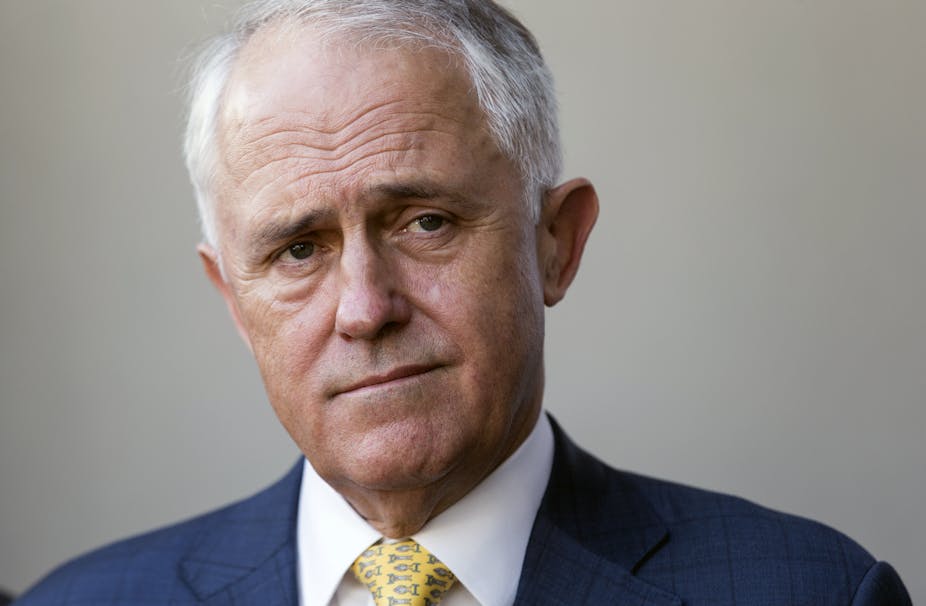The momentum for a July 2 double dissolution has accelerated with Malcolm Turnbull opening the way to bring the May 10 budget forward by a week.
“The budget will be in May,” he said on Tuesday, as he prepared to chair the cabinet expenditure review committee, which had tax policy before it.
An earlier budget day is the ultimate in “agility”, even if it does look a little extraordinary for a government that often seems to be running late. To get it done, decisions about the budget’s content would need to be sped up.
But the tight timetable for a July 2 election leaves no other way. The government has to get supply through before the parliament is dissolved. That can’t be done next week – the last sitting week before budget day on the present timetable. And pushing the supply legislation through the two houses between a May 10 budget and a May 11 final day for calling the double dissolution is a bridge too far.
Inserting an extra sitting week, with the budget on May 3, would leave more time to deal with supply, as well as avoiding the unseemly denial of the opposition leader’s right to a parliamentary budget reply.
The Senate is its own master, however. The government doesn’t have the numbers there and it is not clear whether it would agree to return early. If it didn’t, the supply legislation, by then passed by the House of Representatives, would have to be put through the upper house on May 10.
But would the Senate choose to be missing in the new budget week? Rather foolish, one would think.
The government would also want to bowl up to the Senate the Australian Building and Construction Commission legislation, presently before an inquiry. If the Senate delayed the bills, this would strengthen the government’s argument that the legislation had “failed to pass”, even if it hadn’t been rejected outright.
The government would add it as a double-dissolution trigger – though whether it qualified would be up to the governor-general – and so elevate industrial relations and Senate obstruction as it launched its election pitch.
If Turnbull pursues a July 2 election, ABC election analyst Antony Green predicts he would likely follow the Bob Hawke 1987 precedent. Hawke went to the governor-general and obtained approval for the double dissolution conditional on supply being passed by the parliament.
Once it gets its Senate voting changes through next week, the argument for a double dissolution becomes politically compelling for the Coalition. If it possesses the means to remove all or almost all of the crossbench “micro” players from the Senate – not including independent Nick Xenophon – why not do so at once? Otherwise, if the government was re-elected at a normal election, the crossbenchers would continue to frustrate it for the next four years, their mood soured by the voting reforms.
There is another reason for an early dash for the polls. The more trouble Turnbull gets from the conservative Liberals, and from a vengeful Tony Abbott in particular, the more he needs an election win to stamp his authority firmly on his party. One only has to know Turnbull’s nature to understand his deep frustration at the internal dissent.
In Tuesday’s Australian Peta Credlin hit back at journalist Niki Savva and her book on the demise of the Abbott government and the destructive relationship between Abbott and his chief-of-staff.
Credlin wrote that much of the post-leadership critique was “politically motivated” and driven by warring Liberal Party camps. “Having watched at close quarters the extraordinary way that Labor ripped itself apart during the Rudd-Gillard-Rudd years, I am dismayed that my own side is heading down the same path,” she said.
The war is coming from the right. But it has become clear it is not going to stop any time soon.
The strength of a post-election mandate, however, would depend on how well Turnbull won. On Tuesday both Newspoll and Essential had Coalition and Labor 50-50 on the two-party vote, with Turnbull’s personal rating reduced, but still way ahead of Bill Shorten’s. While a Coalition victory is expected by both sides, government marginal seat holders will be feeling a good deal less comfortable than a few months ago.
The road to a July 2 election would not be easy for Turnbull. In an agonisingly long campaign, it is unpredictable whether he or Shorten would better stand up to such a gruelling test of political stamina.

